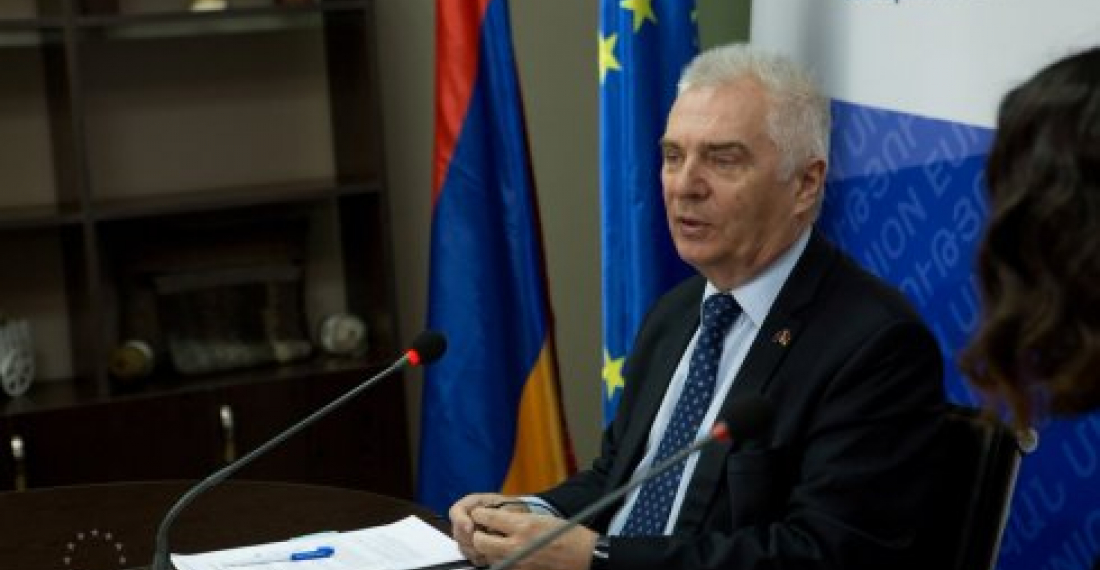The European Union fully supports the activities of the OSCE Minsk Group co-chairs on the settlement of the Nagorno-Karabakh conflict, and will be ready to contribute to the region's rehabilitation once there is a peace agreement. This was stated by the EU Ambassador to Armenia, Piotr Switalski whilst speaking to journalists at the Public Journalism Club in Yerevan.
Switalski highlighted the relative calm on the line of contact in recent months and hailed it as a positive development. The EU Ambassador said that the peace process itself is extremely difficult and fragile. All we can do as external partners is to put our trust in the efforts of the Minsk Group co-chairs and their activities and this is what we are doing as EU," he added.
Switalski noted that EU will be ready to contribute to the rehabilitation of the region when peace comes.
In the press briefing which lasted one hour Switalski spoke about a wide range of issues in EU - Armenia relations, and after answered questions from journalists.
The EU Delegation to Armenia tweeted:
Today #AmbassadorŚwitalski gave a press conference at Public Journalism Club (PJC) on #EU-#Armenia relations. The Ambassador also answered the questions of journalists. You can watch the recorded version of the press conference by Factor TV
source: commonspace.eu
photo: EU Ambassador to Armenia piotr Switalski gave a press brieifing on Tuesday, 26 February in Yerevan. (photo courtesy of @EU_Armenia)






